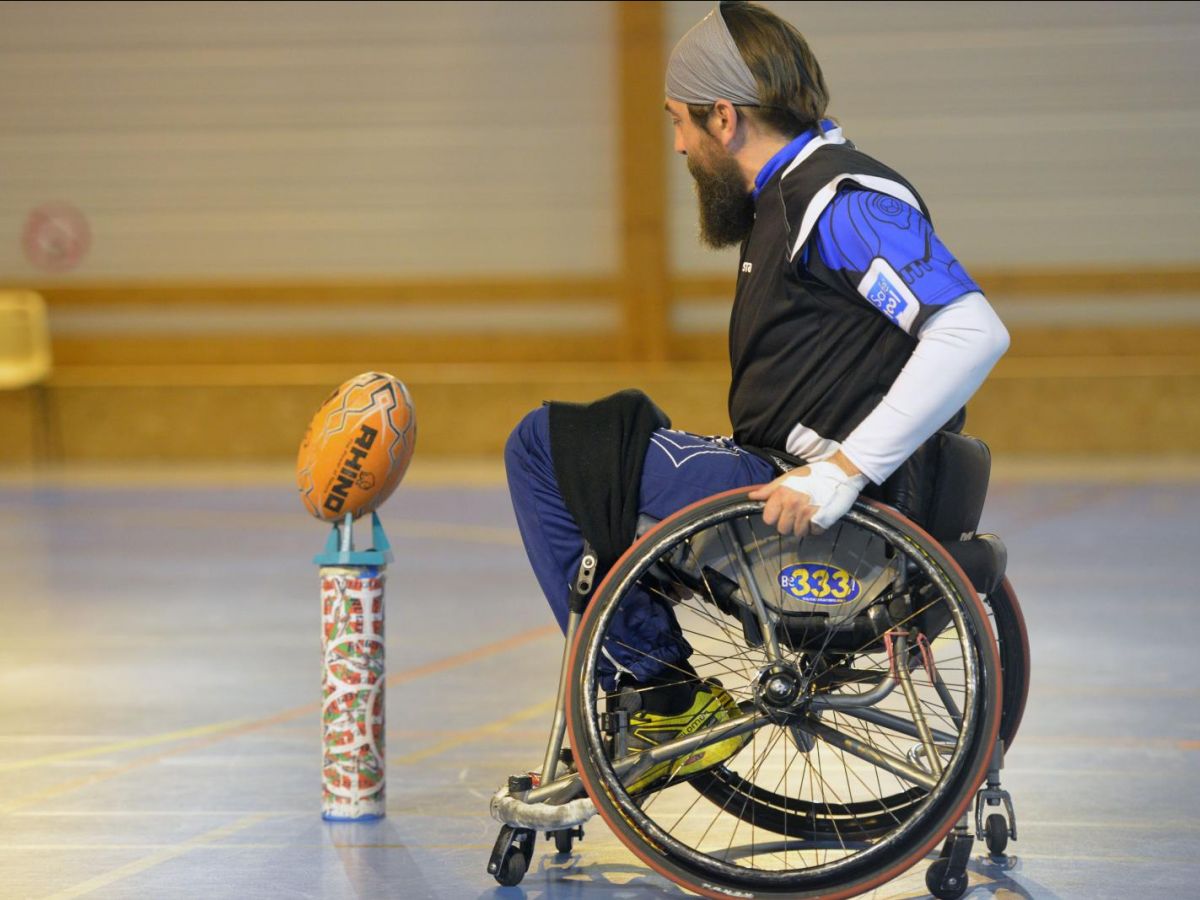Yes, of course, the French team did not win a medal, it is "only" fifth. But what a global shock, not only for the athletes in their wheelchairs with large inclined wheels, but also for the spectators of all the great rugby matches during these Paralympic Games.
An art of sliding towards the blue stripe on the ground
Shock to see that we immediately wonder when it will be possible to see them again, after this first time as a novice spectator! Will the public show as much enthusiasm as that shown until September 2, even when the French were not in the room? A surprise? Despite the inexperience (of the said spectator), the big shots quickly find their way.
Take the United States and Japan, for example, in their group match on August 30, three days before the Japanese players won the gold medal, a first for them. Not surprising given the way Ike Yukinobu, at the head of the team, charges forward without ever tiring.
Read also2024 Paralympic Games: How can the events be fair?
My British neighbour, as phlegmatic as she is silent, whispers furtively in my ear that at the match the day before (which she attended, so what invisible passion), she found the Japanese really "rude". We say to ourselves in petto that the mood is not really soft, today either, just at the moment when the 32 Japanese finds himself thrown back, his back on the floor. People are not feeling very good in the stands.
But Katsuya Yashimoto, about whom we didn't know much except to admire since the beginning of the game his very tactical way of scoring his tries, displaying an almost imperturbable face, is relieved. And he leaves, all the muscles of his arm in action to roll the chair towards victory. Thunderous applause.
It is an art to slide towards the blue stripe on the ground, and to cross the two wheels to score a try, sometimes backwards and very gently, but yes. Thank you Official website which instantly tells us that the athlete was the youngest Japanese to win a Paralympic medal, bronze, at the previous JP. Despite the American defeat, the other stunning move came from Sarah Adam.
The only woman on the USA team, composed – as conveniently specified for the uninitiated by a pre-match video (see video opposite) – so as not to exceed a total of 8 points (8.5 if there is a woman). Explanation: this is the sum of the numbers displayed on the back of each of the chairs, thus giving the level of handicap (0.5 low ability to move and handle the ball; 3.5 high ability to move and handle the ball).
Sarah (2.5), as a matter of course, always knows where to position herself to very skillfully collect the ball, not oval, but volleyball type. Looking for her pedigree, we see that she comes from the University of Illinois where she is a professor of occupational therapy.
"War is the prosthesis's best friend"
During the United Kingdom-Denmark match, several wheel changes were required. Although more police (" polite ", in the words of my British neighbour) is a match where you wouldn't want to find yourself stuck between two chairs when they collide. Especially when Peters meets Robinson.
Red and black (their jerseys). Two big babies as we used to say (do we still say it?) when watching wrestling matches. But it's not Cheri-Bibi vs. the White Angel, there is no laughing matter.
Stuart Robinson and Mark Peters, the two veterans of wheelchair rugby. Credit DL.
For Mark Peters the Dane and Stuart Robinson the Briton, the turning point did not occur during a sporting fight, but in combat itself. Both were injured by explosive devices in Afghanistan. Dare we say that the cause of their handicap instantly brings us back down to earth.
It reminds us of the ongoing conflicts in Ukraine, Gaza, or Sudan. And a melancholy phrase from the French archaeo-anthropologist Valerie Delattre, who launched the first "the archaeology of disability", in echo: "War is the prosthesis's best friend"In wheelchair rugby, with respect for the rules of the game, these two veterans give everyone hope.


